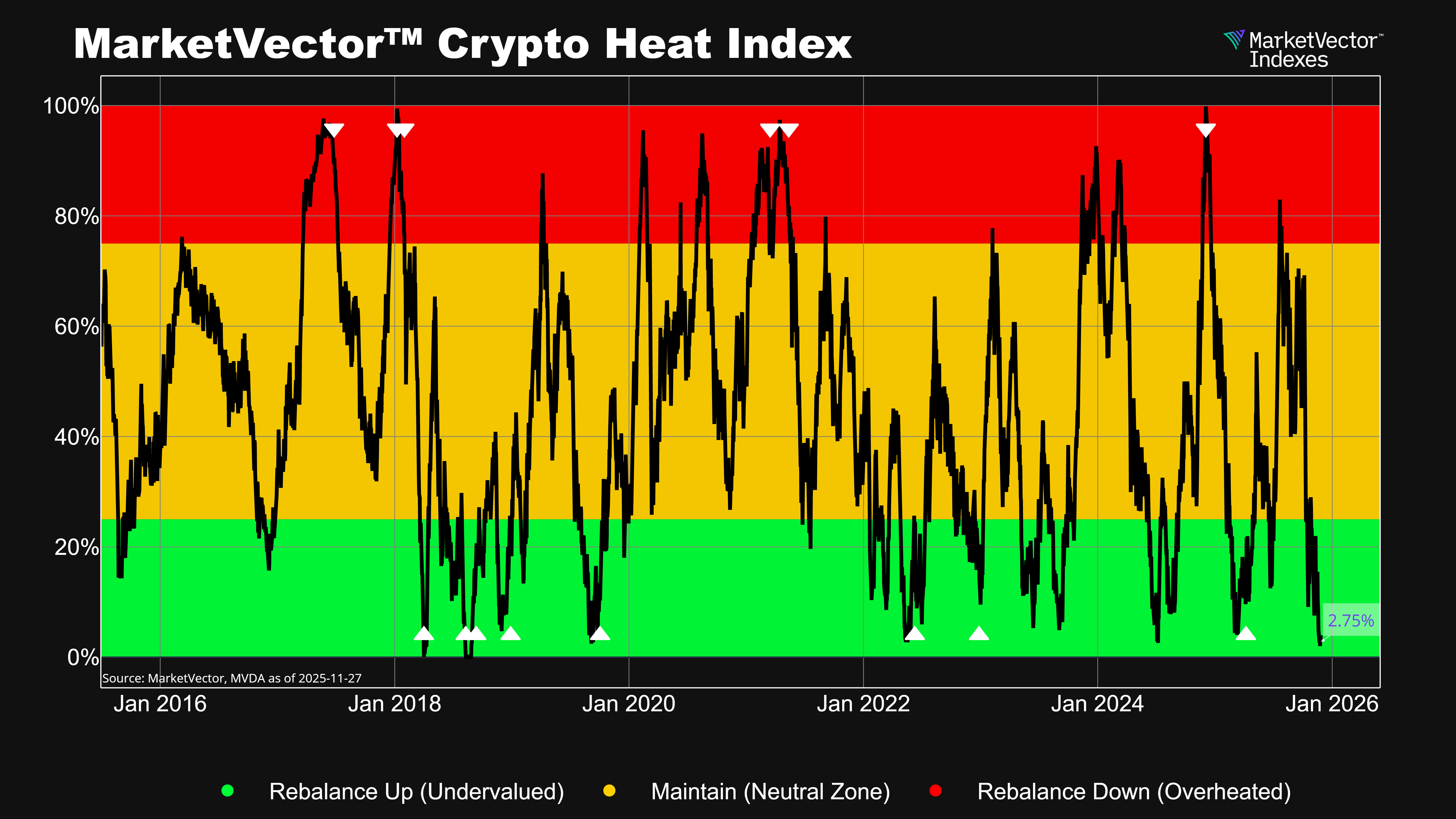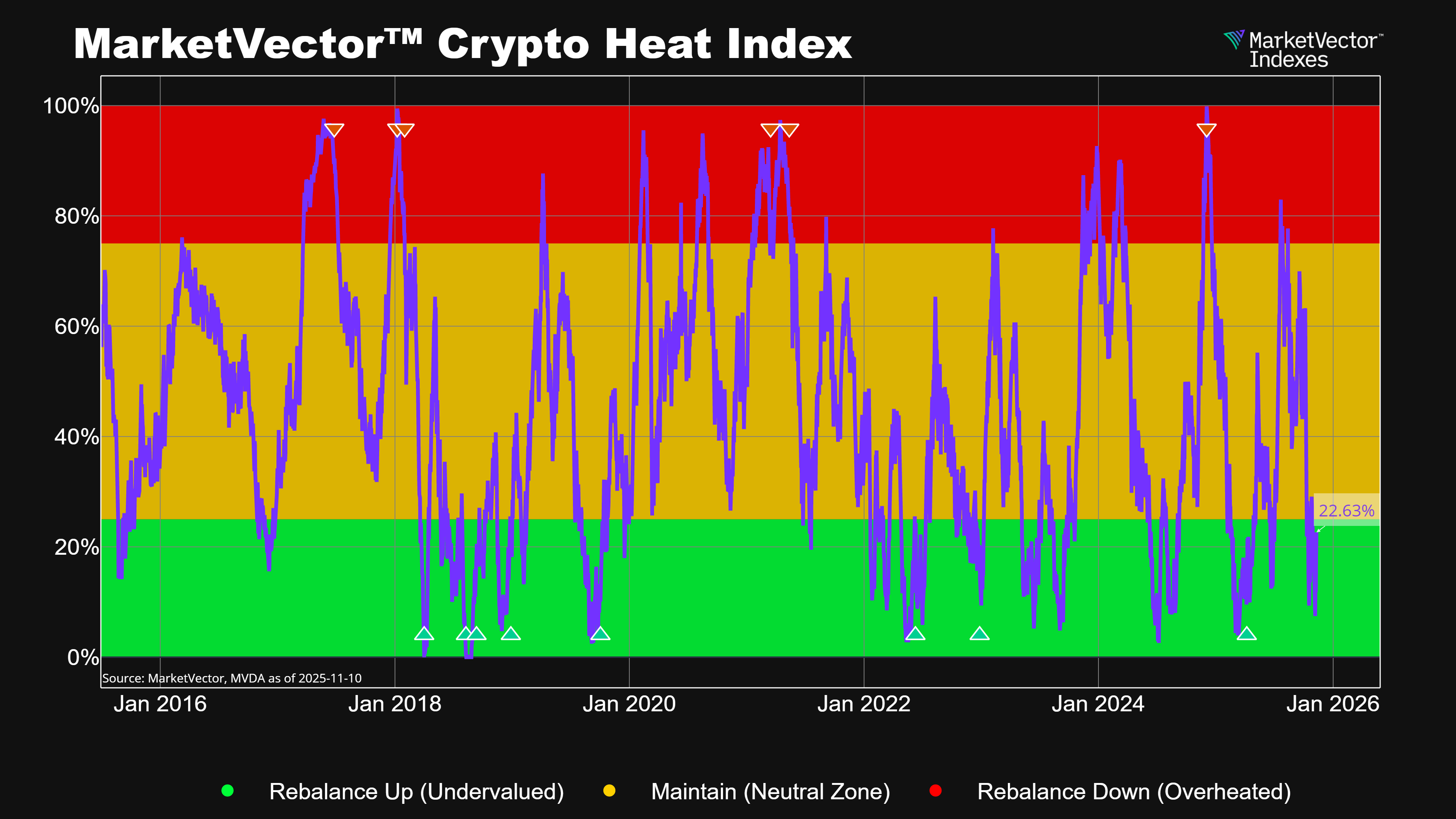The MarketVectorTM-GammaRoad U.S. Equity Strategy Index (MVGMMA) employs a rules-based, adaptive process to allocate between U.S. equity exposure and Treasury Bills exposure based upon its fundamental, behavioral, and trend-based measures for U.S. equity market risk.
The S&P 500 Total Return Index fell modestly in April, although it likely did not feel anything like “modest” for equity investors. The market swiftly plummeted -11.19% through the first 6 market days of the month, before staging an impressive rally to finish down -0.68% for April and down -4.92% year-to-date. The MarketVectorTM-GammaRoad U.S. Equity Strategy Index (Bloomberg: MVGMMA Index) maintained its 100% T-Bills exposure throughout April and returned +0.34% for the month and +1.18% year-to-date.
The primary question on many investors’ minds might be “Is this a short-term spike in volatility, or is the next bear market unfolding?” By definition this can only be known with hindsight. The current environment brings front and center what we consider to be the most useful definition of investment risk. Specifically, we do not characterize risk as the possibility/probability of an adverse event that may cause the market to fall. Rather we define risk as the condition where an investor’s portfolio does not hold anything to meaningfully mitigate (or even benefit from) an adverse market reaction to these events.
The market volatility during April provides an excellent illustration of this. To learn more about the potential benefits of the strategy’s systematic process during periods of heightened market uncertainty, please access our full strategy update here.
Get the latest news & insights from MarketVector
Get the newsletterRelated:




